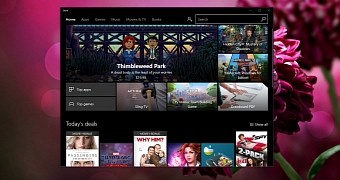Microsoft revealed during the first day of this year’s Build developer conference that there are more than 1,000 Win32 programs ported to the Windows Store at the moment, saying it’s overwhelmed by the developer response it sees lately.
Project Centennial is Microsoft’s set of tools supposed to help developers port Win32 software to universal apps, and it was announced nearly 8 months ago.
Launching desktop programs in the Windows Store opens the door to a new series of features, but also opportunities for developers, as universal apps can boost revenues with in-app purchases, but also offer Windows 10-specific features like Cortana and live tiles.
This is one of the reasons developers like Project Centennial decided to port their products, Microsoft engineers explained at Build when they also showed a slide with what they call “success stories.” These are desktop programs that have already launched in the Windows Store, including here Kodi, Evernote, Musicmatch, and Magix.
Many big developers staying away from UWP
While there’s no doubt that seeing the number of ported desktop apps growing is good news for both Microsoft and users, it’s also no secret that the big names are still missing from the Windows Store and the first category that comes to mind is browsers.
At this point, the top desktop browsers on the market are not available in the Windows Store, with neither Mozilla nor Google very keen on porting their software. While Google itself has no intention to bring any of its apps in the Windows Store, Mozilla at some point planned a touch-optimized version of Firefox, though development of this version has slowly been phased out.
Browsers, however, are a particular software category that’s more difficult to launch as UWP, as Microsoft’s Store policy requires developers to switch to the Edge rendering engine for browsers posted in the Windows Store. This is a security feature that other app stores like Apple’s are also using, but of course, this hasn’t stopped Google and Mozilla from launching their browsers on iOS.
It will definitely take many more months and probably years until developers decide to port their apps to the Windows Store, but for the moment, Microsoft has no other option than to be “overwhelmed” with the number of developers interested in the desktop bridge.
Microsoft is very committed to working with developers to make it happen, so expect more news on this front in the near future.

 14 DAY TRIAL //
14 DAY TRIAL //